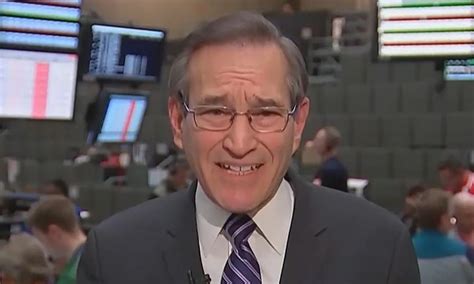A Quote by Jim Rogers
Many investors seem to have forgotten a hard reality: There are frequent periods when stock markets don't do much.
Related Quotes
Unfortunately our stock is somehow not well understood by the markets. The market compares us with generic companies. We need to look at Biocon as a bellwether stock. A stock that is differentiated, a stock that is focused on R&D, and a very-very strong balance sheet with huge value drivers at the end of it.
Unfortunately, our stock is somehow not well understood by the markets. The market compares us with generic companies. We need to look at Biocon as a bellwether stock. A stock that is differentiated, a stock that is focused on R&D, and a very, very strong balance sheet with huge value drivers at the end of it.
Nothing in finance is more fatuous and harmful, in our opinion, than the firmly established attitude of common stock investors regarding questions of corporate management. That attitude is summed up in the phrase: "If you don't like the management, sell your stock." ... The public owners seem to have abdicated all claim to control over the paid superintendents of their property.
If you expect to be a net saver during the next 5 years, should you hope for a higher or lower stock market during that period? Many investors get this one wrong. Even though they are going to be net buyers of stocks for many years to come, they are elated when stock prices rise and depressed when they fall. This reaction makes no sense. Only those who will be sellers of equities in the near future should be happy at seeing stocks rise. Prospective purchasers should much prefer sinking prices.
Too often, investors are the target of fraudulent schemes disguised as investment opportunities. As you know, if the balance is tipped to the point where investors are not confident that there are appropriate protections, investors will lose confidence in our markets, and capital formation will ultimately be made more difficult and expensive.
There is a bit of a problem with the match between derivative securities markets and the primary markets. We have long ago instituted principles, essentially high margin requirements, to prevent certain instabilities in the stock market, and I think they're basically correct. The trouble is that there's a linkage, let's say, between something like the stock market and the index futures markets, and the fact that the margin requirements are very different, for example, played some role in the October '87 crash.
In the stock market (as in much of life), the beginning of wisdom is admitting your ignorance. One of the many things you cannot know about stocks is exactly when they will up or go down. Over the long term, stocks generally rise at a nice pace. History shows they double in value every seven years or so. But in the short term, stocks are just plain wild. Over periods of days, weeks and months, no one has any idea what they will do. Still, nearly all investors think they are smart enough to divine such short-term movements. This hubris frequently gets them into trouble.
































